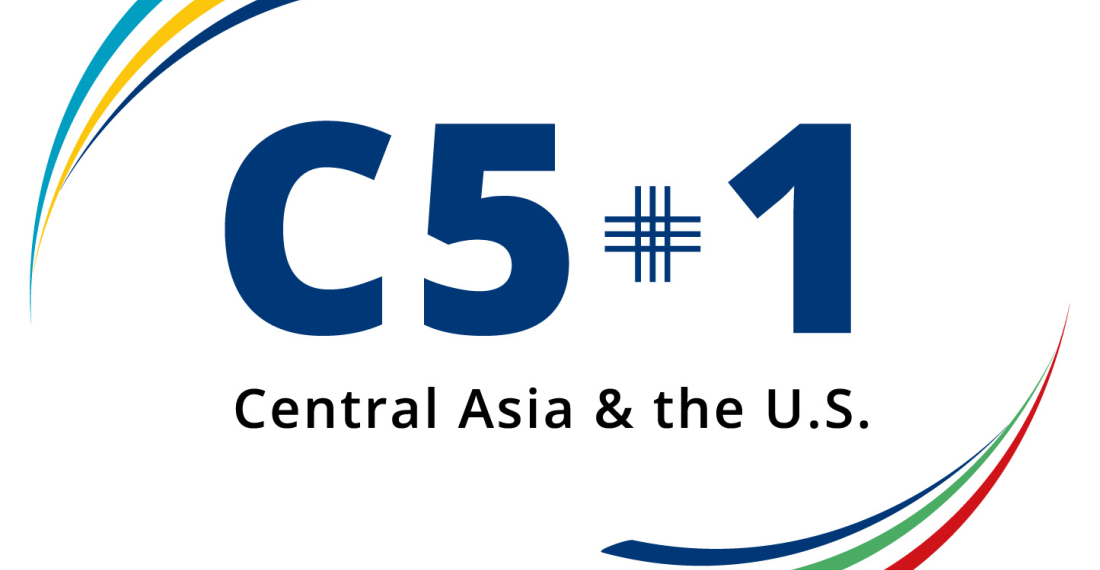For a number of years, the United States has promoted a mechanism for dialogue with the five Central Asian Republics: Kazakhstan, Kyrgyzstan, Tajikistan, Turkmenistan and Uzbekistan. Known as the C5 + 1 these meetings have usually be en held at the level of foreign minister. The first meeting was held in 2015, and the mechanism now also has a secretariat to ensure continuation between meetings.
Today (19 September) in New York, US president Joe Biden will take the relationship further, by upgrading the dialogue to presidential level. This is both symbolic and significant.
For a long time the United States has been accused of abandoning Central Asia, tacitly accepting that this was Russia's back yard. Well if it ever was, it no longer is. China has become an even more important player in Central Asia than Russia, and the Central Asian Republics are desperately trying to open up to the world. A slow, painful but hugely necessary process of reform is taking place in the five countries, in some pursued with more enthusiasm than others.
At today's meeting, President Biden is expected to give encouragement to this reform process, but the key message will be one of support for the sovereignty, independence and territorial integrity of the five countries - a welcome message in the region given Russia's continued pressures.
Also on the US president's agenda will be Afghanistan, which neighbours a number of the C5 countries. And of course there is the issue of sanctions against Russia as a result of its invasion of Ukraine. Russia has been trying to use the Central Asian republics to circumvent the sanctions. This is an important issue for the international community and the US president will seek the best way to secure the support of the C5 governments.
For the five Central Asian countries the summit with Biden is very significant, and shows that they are now playing at the top-table of diplomacy and international relations. The C5 countries held their own summit in Dushambe last week.
The 5th Central Asian summit, chaired by the President of Tajikistan Emomali Rahmon, focused on some tangible areas for future co-operation. Apart from the usual final Joint statement of the Heads of State, four agreements were initialled: (a) Agreement on Strengthening the Interconnectedness of Land Transport in Central Asia; (b) Agreement between the Central Asian countries on general directions of youth policy; (c) Regulations on the Council of National Coordinators for Consultative Meetings of the Heads of Central Asian States; and (d) Roadmap to Support Health and Well-being in Central Asia for 2022-2025.
In a Joint statement, the Presidents confirmed the exceptional importance of the mechanism of Consultative Meetings for the consistent strengthening of friendly relations between the countries of Central Asia. The Heads of State called for the solution of all regional issues by political and diplomatic means on the basis of equality and respect for each other’s interests. The document emphasizes that the United Nations is the only universal organization of global scope, possessing universally recognized legitimacy and playing a central role in preserving peace and security on the planet and promoting universal development. In the context of security issues, the heads of state stated that countering terrorism and extremism, drug trafficking, as well as other challenges will remain under their focus. In this regard, the countries of the region will step up efforts at the national and regional levels to counter the spread of extremist ideas, especially among young people.
One topic which is highly relevant for the Central Asian countries is Afghanistan. In their summit in Dushambe, the Central Asian leaders reviewed the situation in Afghanistan, stressing the importance of resolving it and advocating for an independent, united and peaceful state. The heads of Central Asian countries once again stressed the importance of creating an inclusive government in Afghanistan with the participation of representatives of the main ethnic, religious and political groups of Afghan society. They also reaffirmed their commitment “to assist the fraternal Afghan people in overcoming the humanitarian and economic crisis”.
Of course, issues between the Central Asian countries remain, not least the border dispute between Tajikistan and Kyrgyzstan. The shadow of this dispute hang over the Dushambe summit. But Central Asian leaders are now focused in trying to ensure that last year’s violent border clashes will not recur, and that some mechanism for resolving the dispute can be put in place.
source: commonspace.eu
photo: Logo of the C5 +1






